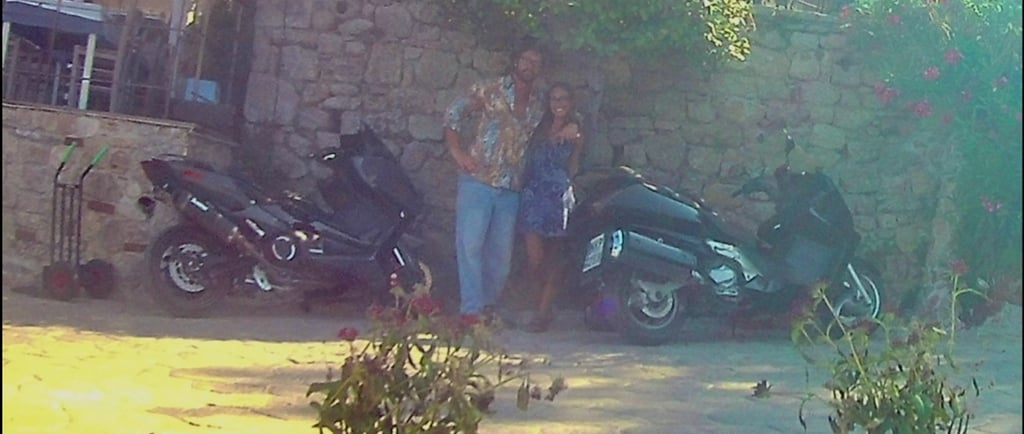The Ultimate Guide to Traveling Europe on a Budget (Backpacking, Buses & Baguettes)
Dreaming of Europe but traveling on a shoestring? This ultimate guide to backpacking Europe on a budget shows you how to eat, sleep, and explore for cheap without missing out on the adventure. From €2 baguette picnics in Paris to FlixBus rides across borders, we cover hostels, budget airlines, free walking tours, and hilarious survival hacks only real travelers know. Learn how to stretch €40–€60 a day into the trip of a lifetime—with funny, practical tips for food, transport, accommodation, and itineraries. Europe doesn’t have to be expensive—it just has to be experienced.
EUROPE
8/19/20256 min read


The Ultimate Guide to Traveling Europe on a Budget
(Cheap Wine, Dirty Buses & Backpack Dreams)
Traveling through Europe on a budget is equal parts magic and misery. One minute you’re eating a €1 croissant under the shadow of the Eiffel Tower, the next you’re sitting on a night bus to Berlin, knees jammed into the seat in front of you, wondering why your life smells like instant noodles and other people’s feet. But that’s the beauty of it: backpacking Europe isn’t about luxury, it’s about the raw, ridiculous adventure of seeing the world when you don’t have two euros to rub together.
I did it the broke way. The way where you pack everything into a bag you can barely carry, eat your meals from supermarkets, and crash in hostels that smell faintly of mold and regret. And you know what? It’s glorious. So here’s the unfiltered guide to doing Europe on the cheap. Forget Instagram-perfect itineraries. This is the version where you survive, thrive, and sometimes sleep on a stranger’s couch.
🎒 Packing: Your First Test of Sanity
If you’ve never carried your life on your back, you’re about to find out how little you actually need. Forget the giant suitcase. Europe will eat it alive. Cobblestone streets in Rome, broken escalators in Prague, the endless staircases of Lisbon—every wheel will shatter, and you will curse your ancestors for ever inventing luggage. A backpack is survival.
You don’t need much: a couple of shirts, a pair of pants, socks, underwear, something vaguely resembling a jacket. That’s it. Wash them in hostel sinks, dry them by hanging them on bunk bed frames like every other broke traveler, and tell yourself the smell is “authentically European.” Bring one good pair of shoes, because you will walk a biblical number of miles. I’ve seen people bring five pairs and abandon them like fallen soldiers in hostels from Amsterdam to Zagreb.
And for the love of sanity, bring earplugs. Because somewhere, in every hostel on this continent, there is a Swedish man named Lars who snores like an idling tractor.
🛏 Sleeping Cheap: Hostels, Couches & Moving Buses
Accommodation is where the money disappears, unless you get creative.
Hostels are the obvious choice. They’re cheap, social, and always filled with Australians who are perpetually “on their gap year.” Some hostels are cozy and charming, with free breakfasts of stale bread and instant coffee. Others are dungeons with broken showers and questionable stains on the mattresses. You take the gamble.
Couchsurfing is wilder. Strangers open their homes for free. Sometimes you get a kind grandmother in Krakow who feeds you pierogis. Sometimes you get a grad student in Barcelona who drags you to a techno club until 6 a.m. Either way, it’s free, and it’s a story.
Then there are night buses and trains, which double as your transportation and accommodation. It’s genius until you wake up at 4 a.m. with your neck shaped like a boomerang, listening to the soft sobbing of someone who realized they’ve been on the wrong bus since Munich. But hey, you saved €30 on a bed.
🍕 Eating Without Starving (or Selling a Kidney)
Restaurants will eat your budget alive, especially if you follow the shiny lights of tourist traps. But the broke traveler knows the real culinary magic of Europe lives in supermarkets and street food.
A baguette in Paris costs €1. Add some cheese and a bottle of €3 wine and suddenly you’re dining like a king for less than a Starbucks latte. I’ve sat by the Seine with this meal and felt smug watching couples drop €60 on a salad inside a restaurant ten feet away.
Street food is your savior. In Berlin, the kebab is religion—€4 and you’re full for half a day. In Athens, gyros are cheap, delicious, and possibly the only reason I survived Greece without going bankrupt. Prague has sausage stalls that smell like heaven. And in Spain, if you’re clever, tapas bars will feed you “free” meals as long as you keep buying beers. One night in Granada, I paid €8 for drinks and rolled out with a stomach full of meatballs, potatoes, and the smug satisfaction of beating the system.
And don’t underestimate hostel kitchens. Half the fun of traveling broke is cooking pasta with six strangers who all argue over how much salt to use. One Canadian guy I met in Budapest made spaghetti so bad it became legendary. We still talk about “the night of the noodle massacre.”
🚆 Getting Around: Cheap, Dirty & Efficient
Transportation is where the broke backpacker either shines or suffers.
Budget airlines are both a blessing and a curse. Ryanair, EasyJet, WizzAir—they’ll sell you a flight from Paris to Rome for €15. But then they’ll charge you €60 for forgetting to print your boarding pass. Pro tip: always read the fine print. And prepare for the fact that “Paris” might actually mean an airport 100 kilometers away in a cow field.
Buses are the broke traveler’s lifeline. FlixBus is your new god. You’ll spend hours staring out of grimy windows, stopping at random gas stations in Slovakia at 3 a.m., but the price is unbeatable. Once I got from Vienna to Budapest for €9. The bus smelled like despair, but I was €50 richer than the guy on the train.
Trains are romantic, but romance costs money. Eurail passes are great if you’re hopping around constantly, but booking regional trains individually can save serious cash. I once took a €6 train through the Czech countryside that was more scenic than half the overpriced “tourist routes” people rave about.
And never forget: Europe is walkable. Half the fun is wandering aimlessly, stumbling into little cafés, or discovering random street performers. Your shoes will die, but your wallet will live.
🏛 Free & Cheap Fun: The Real Joy of Europe
The best things in Europe are free—or almost free.
Every city has free walking tours. You show up, follow a local guide for two hours, learn history, and leave a tip (or not, depending on how broke you feel). In Berlin, I learned more from a free walking tour than any museum. In Krakow, the guide took us straight to the cheapest vodka bar in town, which I consider a cultural highlight.
Museums have tricks. Paris museums are free on the first Sunday of the month. London’s are free all the time, because the British stole enough stuff to fill every hall. Even in smaller cities, student discounts are everywhere—flash an old student ID (no one checks too hard) and you’re in for half price.
And then there are the churches, cathedrals, and open squares. I’ve stood in Notre Dame (pre-fire), St. Peter’s Basilica, and random village chapels—all free, all more beautiful than any ticketed “experience.” Europe’s public spaces are like open-air museums. Picnics in Hyde Park, sunsets over Santorini, wandering Venice’s alleys until you’re lost—none of it costs a cent.
💡 Hacks & Survival Tricks
Traveling cheap means living smart. Buy local SIM cards instead of paying roaming fees. Carry a refillable water bottle—Rome has fountains that pump free, clean water on every corner. Travel off-season if you can: Venice in February is misty and magical without the tourist hordes.
And drink like a local. Forget cocktails. Buy beer at corner shops in Prague for €1. Sip Spanish wine that costs less than bottled water. In Budapest, ruin your liver with cheap pálinka and still have change for a kebab.
The one unbreakable rule: never eat within 200 meters of a major landmark. That €25 spaghetti near the Colosseum? It came out of a microwave. Walk three blocks, find a mom-and-pop joint, and suddenly you’re eating the real thing for €8.
🤡 The Honest, Ugly Truth
Here’s what the Instagram influencers won’t tell you:
You will smell bad. Everyone does. It’s part of the aesthetic.
You will cry on a night bus. Once. Maybe twice.
You will miss a train and end up stranded in some station that looks like a Soviet relic.
You will share a hostel room with a guy who thinks deodorant is optional.
And you will question your life choices at least once a week.
But then, out of nowhere, Europe will slap you with magic. You’ll be sitting on a bench in Budapest watching the Danube glow at sunset, or hiking a random trail in Switzerland, or laughing with strangers over €3 wine in Barcelona—and you’ll realize that being broke in Europe is a thousand times better than being comfortable anywhere else.
💶 So How Much Does It Actually Cost?
Here’s the beautiful truth: you can survive Europe on €40–€60 a day. That’s food, accommodation, transportation, and fun. If you’re a master of suffering (hello, instant noodle diet), you can even do it for less.
Compare that to a standard “vacation package” where people blow €3,000 in a week sitting in resorts. Backpacking isn’t about comfort—it’s about collecting stories, scars, and friends from ten countries who’ll still message you three years later with “remember that time we almost missed the bus to Belgrade?”
🏆 The Gonzo Traveler’s Creed
Traveling Europe on a budget is not glamorous. It’s chaotic, messy, uncomfortable, and absolutely beautiful. You will live on bread, cheap wine, and adrenaline. You will curse Ryanair, praise FlixBus, and laugh until you cry in hostel kitchens with strangers. And when you come home, people will say, “Wow, you’re so lucky.” But luck had nothing to do with it—you made it happen with stubbornness, creativity, and the courage to live broke but free.
So pack the bag, book the bus, and go. Europe doesn’t care if you’re rich or poor. It only cares if you show up.
